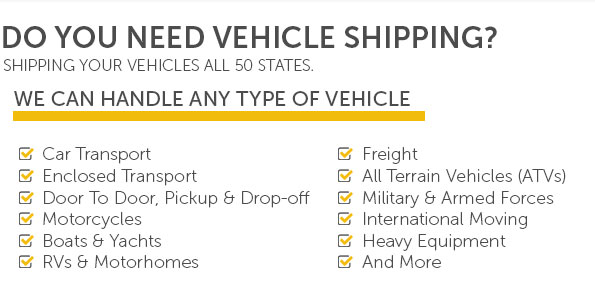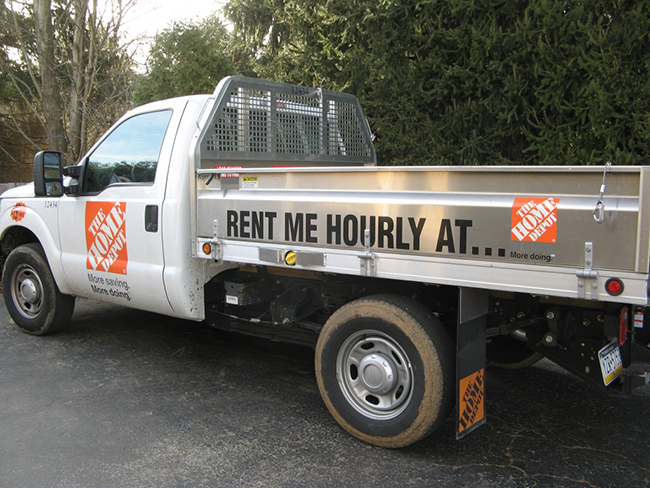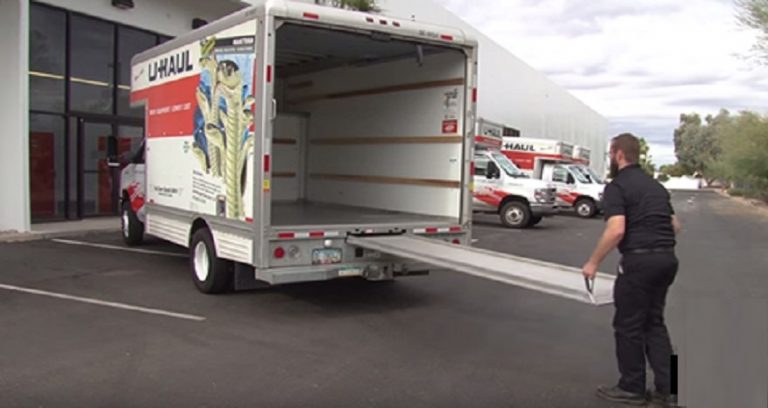Moving Truck Rental Deals: Your Ultimate Guide to Saving Money on Your Next Move
Moving can be one of the most stressful experiences in life, but it doesn't have to break the bank. A significant portion of moving expenses often comes from transportation, making moving truck rental deals a critical area to focus on for cost savings. This comprehensive guide will walk you through everything you need to know to secure the best possible price on your moving truck rental, ensuring a smoother and more affordable transition.
Okay, here's a comprehensive blog post on moving truck rental deals, designed to be informative, engaging, and optimized for search engines.
Understanding the Landscape of Moving Truck Rentals
Before diving into specific deals and strategies, it's essential to understand the basics of moving truck rentals. Different companies offer varying services, truck sizes, and pricing structures.
-
Popular Moving Truck Rental Companies: U-Haul, Penske, Budget Truck Rental, and Enterprise Truck Rental are some of the most well-known and widely available options. Each has its strengths and weaknesses in terms of pricing, availability, and customer service.
-
Truck Sizes and Selection: Choosing the right truck size is crucial. Overestimating can lead to unnecessary costs, while underestimating can result in multiple trips or the need for a second truck. Rental companies typically offer a range of sizes, from cargo vans to large trucks suitable for entire households.

-
Pricing Structures: Rental rates can vary significantly based on factors like the day of the week, time of year, distance traveled, and the location of pickup and drop-off. Understanding these variables is key to finding the best deal.

Key Factors Affecting Moving Truck Rental Costs
Several factors influence the final cost of your moving truck rental. Being aware of these can help you plan and potentially reduce your expenses.
-
Distance: Local moves (within the same city or metropolitan area) are usually charged at an hourly or daily rate, while long-distance moves are typically priced based on mileage.

-
Rental Duration: The longer you need the truck, the higher the cost. However, some companies offer discounts for extended rental periods.
-
Time of Year: Demand for moving trucks peaks during the summer months (June-August) and around the end of the month, leading to higher prices. Off-season moves (fall, winter, and early spring) generally offer better rates.
-
Day of the Week: Weekends are the busiest and most expensive times to rent a truck. Moving during the week, especially midweek (Tuesday-Thursday), can save you money.
-
Location: Rental rates can vary depending on the location. Picking up and dropping off the truck at different locations (one-way rentals) may incur additional fees.
-
Insurance: Rental companies offer insurance options to cover potential damage to the truck or your belongings. While it adds to the cost, it can provide peace of mind.
-
Additional Fees: Be aware of potential extra charges, such as fuel costs, environmental fees, late return fees, and cleaning fees.
Strategies for Finding the Best Moving Truck Rental Deals
Now, let's explore practical strategies to help you secure the best possible deal on your moving truck rental.
-
Compare Prices from Multiple Companies: Don't settle for the first quote you receive. Get quotes from at least three different companies to compare prices and services. Websites like Moving.com and similar platforms can help you compare multiple quotes at once.
-
Book in Advance: Booking your truck well in advance, ideally several weeks or even months before your move, can help you secure a better rate and ensure availability, especially during peak season.
-
Consider Off-Peak Seasons and Days: As mentioned earlier, moving during the off-season or on weekdays can significantly reduce your rental costs. Be flexible with your moving date if possible.
-
Look for Discounts and Promotions: Many rental companies offer discounts for students, military personnel, AAA members, and other groups. Check their websites or ask customer service representatives about available promotions.
-
One-Way vs. Round-Trip Rentals: For long-distance moves, carefully consider the cost of one-way versus round-trip rentals. One-way rentals can be more convenient, but they may also be more expensive due to drop-off fees. Compare the total cost of both options.
-
Check for Mileage Restrictions: Some rental agreements include mileage restrictions. If you exceed the allowed mileage, you'll be charged extra per mile. Estimate your mileage accurately to avoid unexpected costs.
-
Read the Fine Print: Before signing the rental agreement, carefully read the fine print to understand all the terms and conditions, including cancellation policies, insurance coverage, and potential fees.
-
Consider Alternatives to Traditional Moving Trucks: Depending on the size of your move, you might consider alternatives to traditional moving trucks, such as portable storage containers (PODS) or freight trailers. These options may be more cost-effective for certain situations.
-
Negotiate: Don't be afraid to negotiate with the rental company. If you find a better price elsewhere, let them know and see if they're willing to match or beat it.
-
Be Flexible with Pickup and Drop-off Locations: Sometimes, picking up or dropping off the truck at a less convenient location (e.g., a smaller town or a less busy branch) can result in lower rates.
Pro tips from us: Always inspect the truck thoroughly before accepting it and note any existing damages on the rental agreement to avoid being charged for them later. Take photos or videos as evidence.
Common mistakes to avoid are: Underestimating the size of the truck you need, failing to factor in fuel costs, and neglecting to purchase adequate insurance.
Leveraging Technology for Better Deals
Technology can be a powerful tool in your quest for moving truck rental deals.
-
Online Comparison Tools: Use online comparison tools to quickly compare prices and services from multiple companies. These tools can save you time and effort.
-
Mobile Apps: Many rental companies have mobile apps that allow you to book trucks, track your reservation, and manage your account. Some apps also offer exclusive deals and discounts.
-
Social Media: Follow rental companies on social media to stay informed about promotions, discounts, and special offers.
-
Online Forums and Reviews: Check online forums and review sites to read about other people's experiences with different rental companies. This can help you make an informed decision.
Understanding Insurance Options
Moving truck rental companies typically offer several insurance options. Understanding these options is crucial for protecting yourself and your belongings.
-
Liability Coverage: This covers damage you cause to other people or property while operating the truck.
-
Collision Damage Waiver (CDW): This covers damage to the truck itself, regardless of who is at fault. However, it may not cover all types of damage.
-
Cargo Insurance: This covers damage to your belongings during transit.
-
Supplemental Liability Insurance (SLI): This provides additional liability coverage beyond the basic policy.
Based on my experience, it's often worth considering purchasing some form of insurance, especially if you're moving a long distance or carrying valuable items. However, check your existing auto insurance policy or homeowner's insurance policy to see if it already provides some coverage.
Preparing for Pickup and Drop-off
Proper preparation can help ensure a smooth pickup and drop-off process.
-
Have Your Driver's License and Payment Method Ready: You'll need a valid driver's license and a credit card or debit card to rent a truck.
-
Inspect the Truck Thoroughly: Before accepting the truck, carefully inspect it for any existing damage. Note any scratches, dents, or other issues on the rental agreement. Take photos or videos as evidence.
-
Understand the Fuel Policy: Know what type of fuel the truck requires and whether you need to return it with a full tank.
-
Plan Your Route: Plan your route in advance, taking into account any height restrictions or weight limits.
-
Return the Truck on Time: Returning the truck late can result in late fees. Plan your schedule accordingly.
-
Clean the Truck: Most rental agreements require you to return the truck in clean condition. Sweep out any debris and remove any personal belongings.
Beyond the Truck: Additional Moving Expenses to Consider
While securing a good deal on your moving truck rental is important, it's also essential to factor in other moving expenses.
-
Packing Supplies: Boxes, tape, bubble wrap, and other packing supplies can add up quickly.
-
Moving Labor: Hiring professional movers can save you time and effort, but it will also increase your costs.
-
Fuel Costs: Estimate your fuel costs based on the distance you'll be traveling and the truck's fuel efficiency.
-
Tolls: Tolls can add to your expenses, especially on long-distance moves.
-
Accommodation: If you're moving a long distance, you may need to factor in the cost of accommodation along the way.
-
Food: Don't forget to budget for food during your move.
Making the Final Decision
Choosing the right moving truck rental deal involves carefully weighing all the factors discussed above. Consider your budget, your needs, and your priorities. Don't be afraid to ask questions and negotiate with rental companies. With careful planning and research, you can find a deal that fits your needs and helps you save money on your next move.
Conclusion: Moving Smart with the Right Truck Rental Deal
Finding the best moving truck rental deals requires a strategic approach. By understanding the factors that influence pricing, comparing prices from multiple companies, and leveraging available discounts and promotions, you can significantly reduce your moving expenses. Remember to read the fine print, understand your insurance options, and prepare for pickup and drop-off. With careful planning and execution, you can make your next move a smoother, more affordable, and less stressful experience.
Internal Link: For more tips on packing efficiently, check out our article on [Efficient Packing Guide] (replace with the actual link to your article).
External Link: For reliable information on moving industry standards, visit the American Moving & Storage Association: https://www.moving.org/
By following these guidelines, you can confidently navigate the world of moving truck rentals and secure a deal that works for you. Good luck with your move!